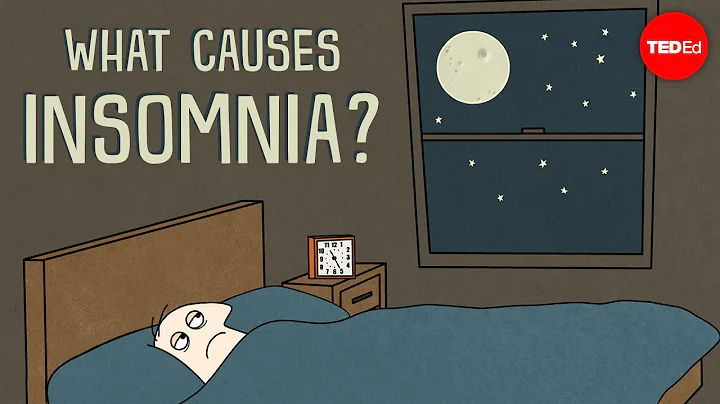
Once your brain worries about being able to fall asleep, it takes work to rewire neural pathways for restful sleep.
Insomnia can be caused by a variety of reasons. However, worrying is one of the most common reasons why people suffer from chronic sleep deprivation. If your brain suddenly goes into overdrive while you're on your pillow, conjuring mountains from mole hills, it's no wonder you have a hard time falling asleep.
This is how to stop anxiety stealing from your eyes. First, though, if you recognize why your brain is currently suffering from insomnia , you'll be more likely to rewire your brain for sleep.
Repetition creates neural pathways
Repetitive behaviors, such as worrying at night, become habits. Your brain is insomniac if you have spent countless nights worrying about problems. Just like it takes time to create neural pathways in the brain through repetition, it also takes time to overwrite old tracks and create new, preferable ones.
The following tips can help you fall asleep, but they may not work right away. Instead, be patient and perform them until they get used to them. Once you make new neural connections, it will be easier to sleep each night.

It is difficult to fall asleep when you are not relaxed. It's hard to relax when you're anxious about falling asleep. Breaking this negative spiral can take a while.
Create a routine to help you relax
When you go to bed, anxiety increases because you want to stay awake. After all, this is what usually happens. So, stress keeps you alert when you're trying to sleep, and you don't want to stimulate anxiety.
follows a routine that teaches your mind and body to relax as bedtime approaches, rather than adding to stress and enduring insomnia. Establishing a similar habit every night will put you in the mood to turn off your busy mind and rest.
Your daily routine might include using calming lavender essential oil in a hot bath an hour before bed before settling in to read. Or, you might prefer to listen to soothing music, write in a journal, or do something else relaxing before spending the night.
Lower your expectations
If you expect to experience insomnia, your anxiety will grow. People who find it difficult to fall asleep often tell themselves that they must fall asleep immediately when they go to bed, imagining that they can force the problem. But doing so creates resistance and stress.
Instead of putting pressure on yourself to fall asleep, imagine yourself resting and enjoying the peaceful thoughts. A change in your attitude will help overwrite old neural pathways in your brain and make way for new sleep habits.
Calm your worries
When your stress rises while you're trying to sleep, recall that there's never a sane reason to worry. Problem solving is illogical and unhelpful.
Remember that difficulties fall into two categories:
- You have the power to change the problem and make a positive difference.
- There isn't much you can do about the challenges you face.
Therefore, you can modify the causes of anxiety and eliminate difficulties. Or accept that you can't make changes and have to live with the situation. Either way, you have no reason to be anxious.
Slow down your thoughts
Calm down your system and prepare it for sleep with gentle, mindful exercises. While in bed, allow thoughts to arise and acknowledge them. When you notice them, imagine them shrinking, floating, or disappearing. Use your mind to picture their insignificant fading.
Initially, practice may not be easy, but practice and you will see positive results. The same is true if thoughts flow like a soliloquy. Reduce their volume or change them to make them interesting; for example, the concern of being broadcast as a squeaky cartoon character's voice will lose its importance and disappear.
Focus on your body
Next, focus on the physical experience rather than mental noise. Think about your body, starting with your feet, and imagine your muscles relaxing. Slowly work your way up to the top of your head, also following your breath. There is no room for worries and you will become sleepy.
Worrying can keep you awake and steal much-needed shut-eye.Pay attention to the suggestions mentioned in the sequence provided, and you will rewire your brain to help you get a good night's sleep.





















